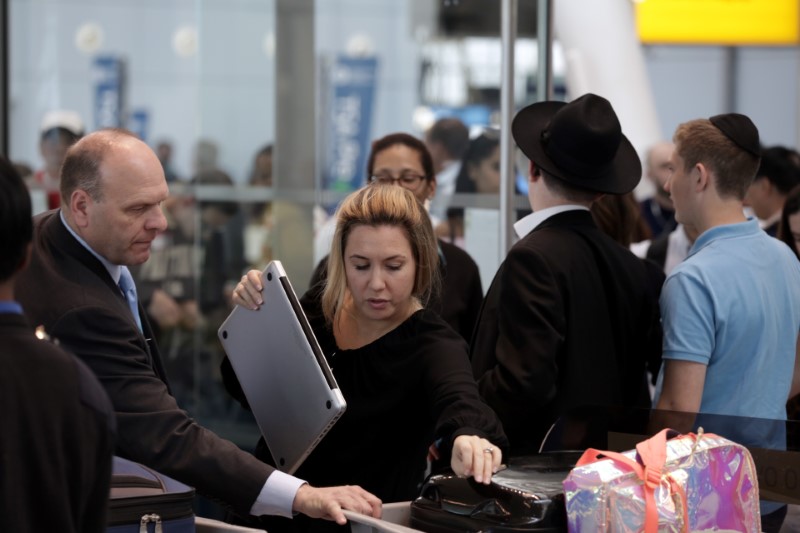By David Shepardson
WASHINGTON (Reuters) - The U.S. Transportation Security Administration (TSA) said Wednesday it will impose new stricter security rules requiring airline travelers to remove all electronic items larger than mobile phones like tablets, e-readers and video game consoles from carry-on baggage for screening.
Prior rules required only laptops to be removed for separate screening. The new rules significantly expand the number of electronic devices that will need to be removed for screening and help government employees get a clearer view during X-ray screening.
TSA said the new rules have been in place in a pilot project at 10 U.S. airports including Detroit, Los Angeles, Boston and Phoenix, and will expand to all U.S. airports in the months ahead.
The new enhanced security rules at U.S. airports only apply at standard security lanes - not at lanes for travelers who are in "pre-check" programs.
Airlines for America, a trade group representing United Airlines [UALCO.UL], Southwest Airlines Co (N:LUV) and American Airlines (O:AAL), said airlines “remain committed to working collaboratively with DHS officials to strike the appropriate balance of maintaining the efficiency of the system, while ensuring the highest levels of security are in place.”
Last week, the U.S. Homeland Security Department said 180 airlines worldwide that fly directly to U.S. airports complied with a first phase of enhanced security measures outlined in June in the face of threats of hidden explosives in electronics.
Enhanced security measures for all foreign flights arriving in the United States were unveiled on June 28 by DHS. Officials said the measures were aimed at ending a limited in-cabin ban on laptops that had targeted nine mostly Middle Eastern airlines, and preventing an expansion of that ban to additional airports in Europe and elsewhere. All restrictions on those airlines were lifted this month.
"It is critical for TSA to constantly enhance and adjust security screening procedures to stay ahead of evolving threats and keep passengers safe," said TSA Acting Administrator Huban A. Gowadia.

The requirements unveiled in June include enhanced passenger screening at foreign airports, increased security protocols around aircraft and in passenger areas and expanded screening by sniffer dogs, and take effect in stages.